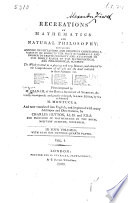 | Jacques Ozanam - Mathematics - 1803 - 548 pages
...the number of terms. quently the sum of the whole progression, is equal to the product of the sura of the first and last terms multiplied by half the number of terms, or, what amounts to the same, to half the product of the sum of the first and the last terms by the... | |
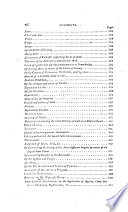 | Isaac Dalby - Mathematics - 1806 - 526 pages
...— (71 — l]d in a descending one. 137. The sum of all the terms in an arithmetical progression is equal to the sum of the first and last terms multiplied by half the number of terms ; viz. s = ( /"-f- /) ". ( 1 32 Arith.) 2 2d +/+ 3 then Sf+10d = s, «>. (/+/-t-4d) x |=J, or (/+ /)!}... | |
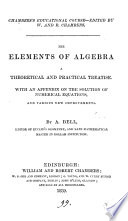 | Andrew Bell (writer on mathematics.) - 1839 - 500 pages
...(и — 1) 6f, which is 8 equal to a + z (424.) 1 The sum of the ternis of an equidifferent series is equal to the sum of the first and last terms multiplied by half the number of terms.1 For arranging the series in order, and also in a reverse order, as in the preceding theorem,... | |
 | Jacques Ozanam - 1840 - 850 pages
...half the number of terms ; consequently the sum of the whole progression is equal to the product of the sum of the first and last terms multiplied by half the number of terms, or, what amounts to the same, to half the product of the sum of the first and' the last terms by the... | |
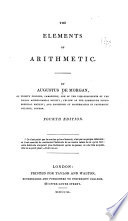 | Augustus De Morgan - Algebra - 1840 - 186 pages
...and /, we know now that a +f, b + e, and e + d, are the same, whence the sum is three times a +f, or the sum of the first and last terms multiplied by half the number of terms, as before. The rule, then, is : To sum any number of terms of an arithmetical progression, multiply... | |
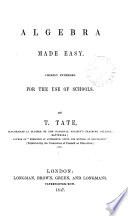 | Thomas Tate (mathematical master.) - 1847 - 138 pages
...the given series. .'. 2s =7x14; .'. s=7J^!! = 49. m This result shows that the sum of the series is equal to the sum of the first and last terms multiplied by half the number of terms. In general let it be required to find the sum of the series, s= a + (a + d) + (a + 2d)+ ... to n terms.... | |
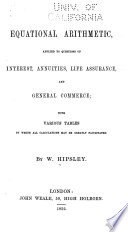 | W. Hipsley - Business mathematics - 1852 - 116 pages
...multiplied by one less than the number of terms." " The sum of the terms of an equidifferent series is equal to the sum of the first and last terms, multiplied by half the number of terms." First term £20 Last term 20 + 4 44 2^ half the number of terms. 88 22 £110 sum of five terms. As... | |
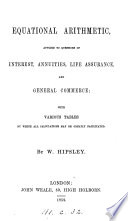 | W. Hipsley - 1852 - 122 pages
...multiplied by one less than the number of terms." " The sum of the terms of an equidifferent se'ies is equal to the sum of the first and last terms, multiplied by half the number of terms." First term £20 Last term 20 + 4 44 : 2^ half the number of terms. 88 22 £110 sum of five terms. As... | |
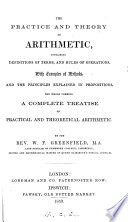 | William Frederick Greenfield - 1853 - 228 pages
...sum of two identical series, is twice the sum of one of them. Hence twice the sum of the series is equal to the sum of the first and last terms multiplied by the number of terms : or the sum of an Arithmetic series is the sum of the first and last terms multiplied... | |
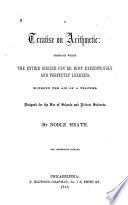 | Noble Heath - 1855 - 468 pages
...any two corresponding terms of the series. The sum, therefore, of all the terms of both series, is equal to the sum of the first and last terms multiplied by the number of terms in one series ; and as this product is evidently just twice the sum of the terms... | |
| |